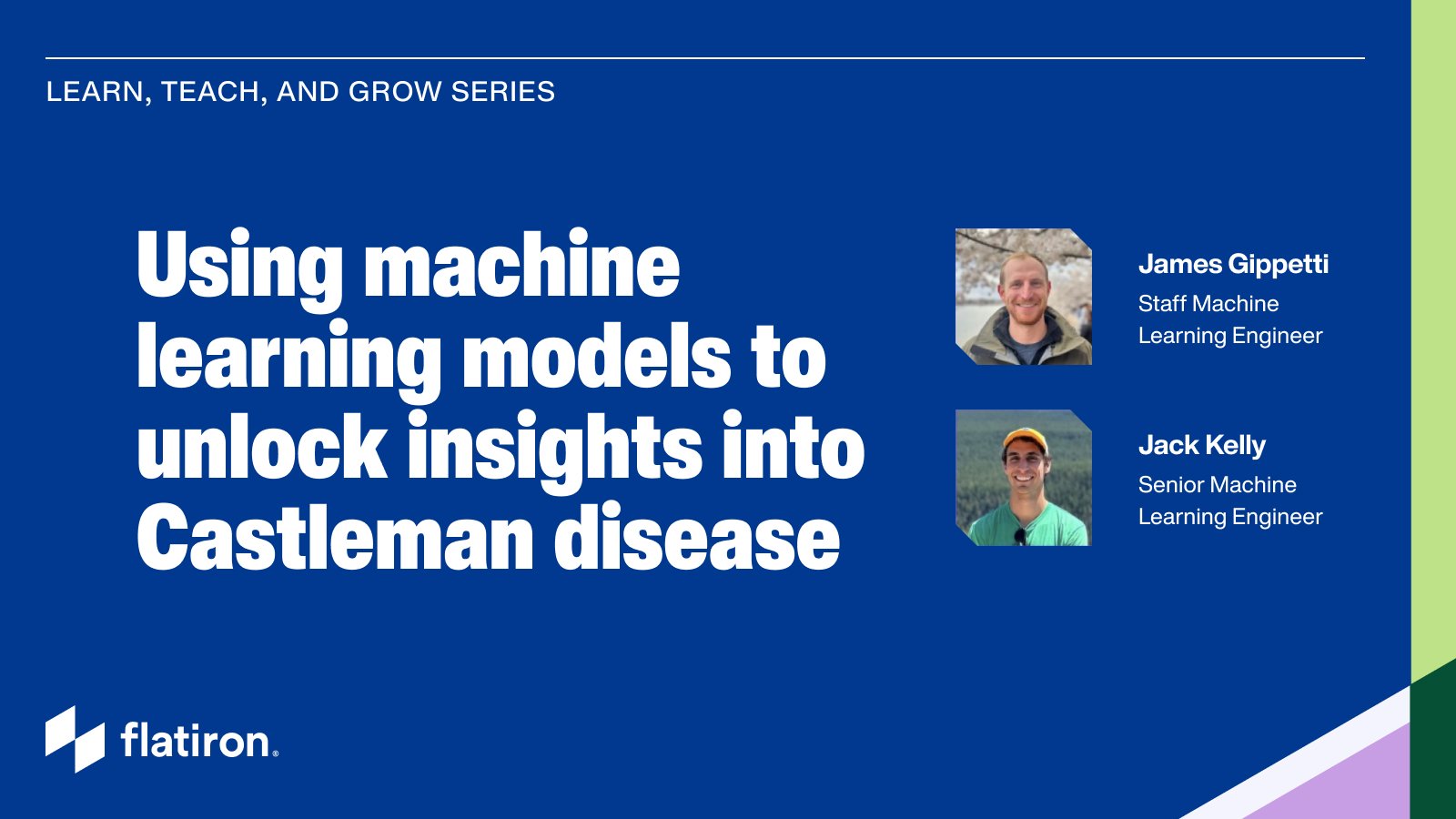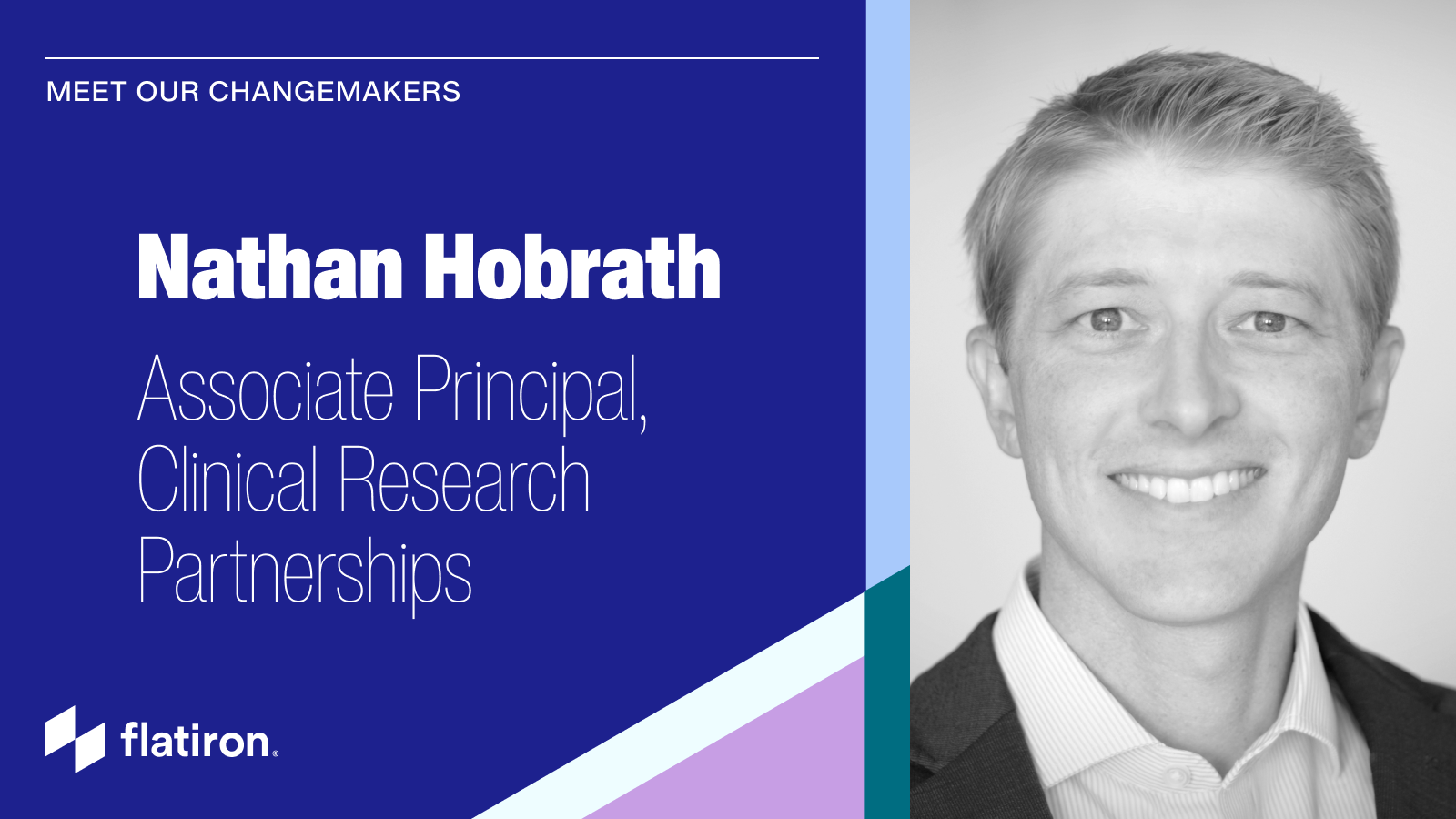It's no secret that the job market is longing for more software engineers, more mathematicians, more scientists. And the good news is, there has been an uptick in the number of college students pursuing technical degrees. However, as veteran journalist George Anders details in his 2017 book " You Can Do Anything: The Surprising Power of a ‚'Useless' Liberal Arts Education , " liberal arts studies shouldn't be thrown to the wayside. He believes that liberal arts courses are valuable in that they build students' intellectual curiosity, critical thinking skills and creativity. In fact, many engineers at Flatiron Health have found that their liberal arts studies, which might seem disparate both from one another and from what we do at Flatiron, have actually helped them in their roles at Flatiron.
In tech, as in any industry or function that operates with cross-functional teams, the ability to communicate effectively and ask questions are every bit as important as the ability to write code. Lauren Ellsworth, a software engineer at Flatiron, developed these skills studying "Law, Letters and Society" – essentially history through a legal lens – at the University of Chicago. "I spent all of college asking why, and I now spend most of my time programming asking why," she said.
Before finding her way to Flatiron, Lauren worked at a startup where she was first exposed to SQL , a domain-specific language designed for communicating with databases and managing data, which she describes as "the gateway drug to programming." While she does have a minor in theoretical computer science, Lauren finds that her understanding of how laws are written and then interpreted in practice helped her better understand how her programming will be interpreted by other engineers on her team.
"To come from a liberal arts background where you're constantly considering how your work will have an effect on the future, and its potential consequences, is really relatable to programming," Lauren said.
Jessie Tseng, a product designer, developed similar skills studying English literature and interdisciplinary human rights at the University of California, Berkeley. She developed a passion for design working for her college paper, and developed skills in research, reading and writing from her academic studies. In her role at Flatiron, she researches the users of our software, which involves asking the right questions in a way that encourages honesty and discourages bias, synthesizing information from multiple sources and developing informed views on various topics. Jessie's role in understanding our customers' needs and synthesizing that information for our teams is essential to developing products.
Rohit Parulkar, who majored in economics and minored in both writing and biology at Washington University in St. Louis, began his career as a researcher in healthcare policy. When he switched to a career as a data analyst, he fell in love with coding. "[It] was really addictive because it felt like what you were writing could immediately come off of the screen and do something," he said. Rohit found that his interdisciplinary background in the humanities informed his understanding of code – biology and economics both provided a strong framework for understanding systems. He also believes that his studies of the economy of words and the precision of language to be applicable to the economy and precision of code. He is now a data insights engineer at Flatiron.
While Flatiron's engineers and technologists have no doubt that their technical degrees and real-world training have been vital to their successes, they have also found tremendous value in their liberal arts studies. As Anders so eloquently writes in his book , "You don't need to apologize for the supposedly impractical classes you took in college or the so-called soft skills you have acquired. The job market is quietly creating thousands of openings a week for people can bring a humanist's grace to our rapidly evolving high-tech future."



